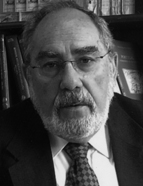

Romero Magalhães also taught at prestigious foreign universities. He was a visiting professor at the École des Hautes Études en Sciences Sociales in Paris (1989 and 1999), the University of São Paulo (1991 and 1997) and Yale University (2003). His familiarity with topics related to colonial Brazil and his extensive collaboration on works directed by internationally renowned historians clearly benefited from the role he played and the networks he built at the National Commission for the Commemoration of the Portuguese Discoveries, where he served as Commissioner General between 1999 and 2002. He was responsible for directing the programme of celebrations for the Discovery of Brazil, seeking the joint involvement of both countries and other states, particularly the former Portuguese colonies. The task was difficult, but the historical commemoration projects he coordinated and implemented were a success and were recognised by national and foreign interlocutors. This is evidence of the diplomatic qualities and academic reputation he had built up, particularly in Brazilian university and intellectual circles. Romero Magalhães’ historiographical work and notable public action were recognised by Brazilian public bodies and the Portuguese State through a significant number of honorary distinctions.
Throughout his life as a citizen and historian, Romero Magalhães often postponed writing a book, which finally saw the light of day at the most opportune moment. He discussed the Republic in Vem aí a República, 1906-1910 (The Republic is Coming, 1906-1910), published in 2009 by Almedina. Although he was a historian of the Modern era, he paid close attention, especially as a reader, to topics in Contemporary History, particularly the periods of the Republic and the Estado Novo. The republican political culture and the emergence of republican forces spoke especially to Joaquim Romero Magalhães, given his family roots. His own model of citizenship and the republican values he espoused were indelible legacies of that intense period of national life, hence the attention he devoted to republicanism in the last years of his life. Romero Magalhães’ historical knowledge and civic affinity with the First Republic and its antecedents, as well as his experience on the Commission for the Discoveries, were obvious reasons for his inclusion in the Commission for Projects to Commemorate the 100th Anniversary of the Portuguese Republic in 2005 and in the Advisory Committee for the Commemoration of the Centenary of the Republic between 2009 and 2011. The qualities and recognition he achieved as a historian did not prevent him from embracing roles that required balanced decision-making, common sense and a degree of realism. He was a reformist who believed in institutions and never left them as he had found them. On a civic level, he was a man of action, committed to democratic socialism and republican ethics. He believed strongly in European integration and its institutions, including the gradual construction of a federal Europe.
This work is financed by national funds through FCT - Foundation for Science and Technology, I.P, in the scope of the projects UIDB/04311/2020 and UIDP/04311/2020.
